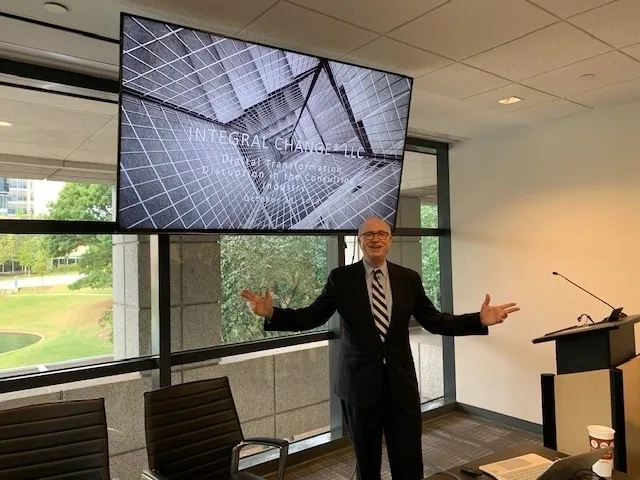The World Is Transforming. . . Adapt or Die

Winning in an Age of Relentless Change and Disruption
Human Beings are the most complex technology in the Universe.
Tony Sibert, Cybersecurity Executive
It’s no secret that people fear and resist change. This natural resistance is the single biggest obstacle to the implementation of new strategies, cultures, business practices, and technologies underpinning business transformation.
Common change management approaches lack the power to harness human commitment and create the momentum necessary to execute major change.
We are human business architects and experts in the technology of change. We work at the intersection of the social sciences, neuroscience, philosophy, business trends, technology, and innovation to change mindsets and create a transformative space where new leadership, business models, organization designs, technology, and expanded human capabilities are possible.
Changing Minds. Changing The World.
Experience Shapes Perception. In their Harvard Business Review article on Welcome to the Experience Economy (July – August 1988), Joseph Pine II and James H. Gilmore summarized the whole theory of economic progress as a four-stage evolution. Commerce began with people extracting and selling commodities, then making and selling goods, followed by delivering services, and today by selling “staged” experiences.
We have moved from selling products and services to an ever-increasing emphasis on helping people have a great customer experience. There’s a good reason for this; it works. It works whether we are designing jobs that people love, creating a great user interface with a Smartphone, or staging a structured, experiential learning experience about leadership; for example, an exercise where leaders participate with their co-workers in a treetop ropes course. Moreover, you do not need such a dramatic experience as swinging through treetops to learn.
Impact of Neurochemicals on Learning. Paul J. Zak’s MIT Sloan Management Review article on The Neuroscience of Customer Experience (Summer 2022) explained that when people are “immersed” in a new experience, the neurotransmitter dopamine contacts our prefrontal cortex, which motivates individuals to pay attention. A secondary effect happens when the neurochemical oxytocin from the brain stem triggers an emotional response linked to what people value and enjoy, creating a powerful experience worth repeating. This is the natural process by which we learn.
Cognitive learning alone seldom produces the level of learning and new insights that experiential learning does. For example, imagine your experience going on a thrilling ride in a Disney theme park vs. listening to a long-winded lecturer describing why you should enjoy that Disney ride.
Which learning experience would be more powerful?


